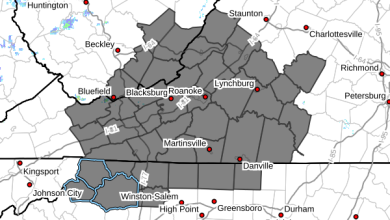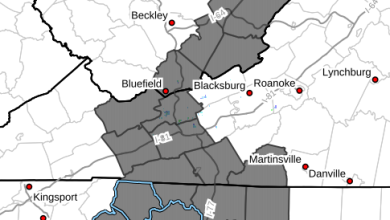
Commissioners at the N.C. Wildlife Resources Commission (NCWRC) have adopted the new rules for the 2024-25 seasons effective Aug 1. The new rules, adopted during the Commission’s February business meeting and approved by the Rules Review Commission in April, include:
Wildlife Poacher Reward Program – Include inland fisheries related crimes for eligibility in the Program.
Deer Hunting – Shift the western blackpowder and gun seasons so that blackpowder season begins two Saturdays before Thanksgiving and runs two weeks until gun season. Gun season will begin the Saturday after Thanksgiving and run through Jan. 1 and shift the timing of the one week and one day blackpowder antlerless seasons to begin the second Saturday of the season. Additionally, Thanksgiving Day and the Friday after Thanksgiving Day will be designated as Youth Days in the western season, and youth under 18 can use any lawful weapon, including all firearms, to harvest deer on those days.
Game Lands – Create the Caswell Small Game Focal Area as a draw permit only area for all quail and woodcock hunting and point-of-sale permit only for rabbit and squirrel hunting outside the normal three days-per-week framework.
Trout Waters Classification – Remove the Wild Trout Waters/Natural Bait Waters classification from Public Mountain Trout Waters.
The proposals adopted were presented at various public hearings held across the state and virtually in January. NCWRC received input from constituents via email, an online comment portal, mail and at the public hearings. Commissioners carefully reviewed the comments, prior to voting.
View the Commision meeting agenda package for the full text of all adopted rules. The 2024-2025 Regulations Digest will be available on Aug. 1, 2024.
NCWRC has adjusted its annual rulemaking schedule to better align with the General Assembly’s legislative calendar. Proposed rules for the 2025-2026 seasons will be presented during (June meeting) and a virtual public hearing will be held in August. Previously proposed rules were presented in October and adopted in February of the following year with public hearings in January.
“Aligning our annual rulemaking schedule with the legislative calendar will help the Commission manage changes to the seasons more effectively and efficiently if the rules are objected to by the public,” said Policy Development Manager, Carrie Ruhlman.
















